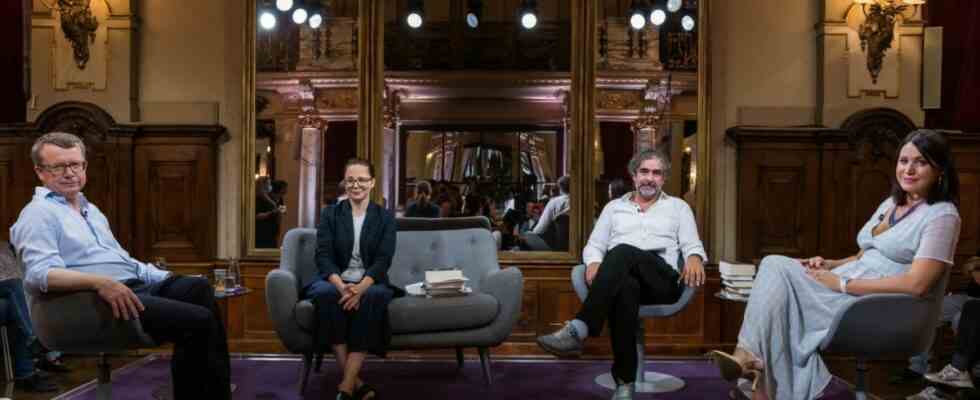In March 1989, the “literary quartet” had incredibly short four minutes and 20 seconds for the author Salman Rushdie and his “satanic verses”, which had just been issued with a fatwa. The Rushdie case was not an issue for literary criticism, argued the journalist Jürgen Busche at the time with seriously folded hands. Then followed one of the awkward sentences typical of the quartet’s early years: “A discussion that combines the quality of Salman Rushdie’s book with Ayatollah Khomeini’s assassination order, that encourages the thought that there might be something to what one may blame the book, and the practice of such an assassination order.”
Everyone agrees that this is world literature, captivating, opulent, funny
This caution, however, warned the former publisher Helge Malchow in an interview with the Süddeutsche Zeitung, has led to the aesthetic quality of the “satanic verses” being ignored to this day. That should change now. After this Knife attack on the Indo-British author Two weeks ago, ZDF announced that it was changing the program of the “Literary Quartet” broadcast this Friday at short notice. 33 years after publication, Salman Rushdie’s book is now on the reading list alongside new releases by Giulia Caminito, Ralf Rothmann and Alain Claude Sulzer.
This spontaneously added 700 pages of postmodern, complex literature. That didn’t change the fact that hostess Thea Dorn, writer Vea Kaiser and journalists Adam Soboczynski (time) and Deniz Yücel (World) admittedly less in the interpretation, but agreed in the judgment as quickly as possible. This novel is world literature, tells an opulent, spellbinding, funny and a bit rough story about two Muslim actors living in London. “In a word: unfortunately awesome,” says Deniz Yücel, who phrases it as snappy as usual, but ignores the reason for his regret. But what is the horny novel about?
Adam Soboczynski puts it this way: “The Satanic Verses” is a migration novel linked to religious themes, the story of an almost divine reinvention of two immigrants, but “so diverse and open to thousands of interpretations that it is very difficult to bring oneself to give it an interpretation admit”. Identity, racism and the diverse British society (“London is full of foreigners”) are the basic themes of the book, counters Yücel and receives encouragement from Thea Dorn, who bought the book when it was published as a 19-year-old, but at the time anyway didn’t understand a word. With the conveyed longing for stable identities in the midst of the post-colonial structure, the story was thirty years ahead of its time. “You couldn’t understand this novel when it was published in England in 1988 and in Germany in 1989.”
Even if one first had to get used to Salman Rushdie’s novel world, which tended towards the grotesque, the immigrant society as a catalyst for identities that were being wriggled free was certainly not Rushdie’s sole invention in the British context. Ruth Prawer Jhabvala had long held the Booker Prize in her hands, and VS Naipaul’s “The Riddle of Arrival” had already been translated into German in 1987.
None of those present had read a single line of the novel in 1989
When the “Literary Quartet” agreed in front of the camera in March 1989 that they did not want to talk about Rushdie, it became surprisingly transparent that none of those present had read a single line of the novel. Why actually? London was not far, and the book industry was as well networked as it is today. The English original would have been readily available for a first impression.
One of the resonating insights of the current “Literary Quartet” is that post-colonial identities, taking the example of the British Commonwealth, were already a hot topic in literature at the end of the 1980s, just as they are today. Except that in this country you might not want to know as much about it as you could have known.

